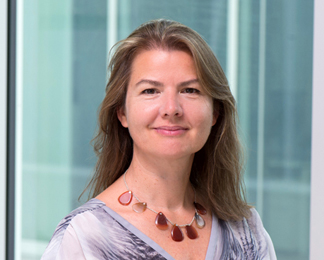Filter By
Individuals
 Data Projects Involved:1
Data Projects Involved:1 Vendors Involved:0
Vendors Involved:0Michèle Ernst Stähli holds a PhD in sociology from the University of Marne-la-Vallée and in social sciences from the University of Lausanne. Michèle Ernst Stähli has over 15 years experience in academic research in sociology of work and teaching of methodology for social sciences, and several years of experience as project manager of scientific surveys at a field agency in Switzerland. Since 2010 she is in charge of the International Surveys team at FORS and is the Swiss Coordinator for the ESS. She now focuses her research on survey methods topics such as translation, incentives, non-response bias and mixed modes.
 Data Projects Involved:1
Data Projects Involved:1 Vendors Involved:0
Vendors Involved:0Mikael Hjerm's research generally concerns attitudes and more specifically prejudice and nationalism. He have focused on why such attitudes vary across countries. His current focus is more on explaining what causes prejudice to change within and between individuals. His research also includes other fields like studies on trust, immigration and gender. His research is funded by VR, FORTE, RJ and Wallenberg including the research program The Evolution of prejudice that involves more than ten researchers and PhD students. Hjerm is the National Coordinator for the European Social Survey (ESS) and the P.I for Comparative Research Centre Sweden which in a national Swedish infrastructure incorporating some of the largest and most influential cross country surveys like ESS, SHARE, ISSP, EVS, SNES and LORE.
 Data Projects Involved:1
Data Projects Involved:1 Vendors Involved:0
Vendors Involved:0Slavko Kurdija is a senior scientist at the Faculty of Social Sciences, University of Ljubljana and senior researcher at Public Opinion and Mass Communications Research Center at the Faculty. He is member of the Slovenian Public Opinion research group since early 1990s and member of the ESS national coordinating team since 2002. His research and academic activities involve designing and fielding quantitative face-to-face and telephone opinion surveys. Main tasks: project management, quality control, supervision. Research topics: social wellbeing, health inequalities, political attitudes and trust in institutions.
 Data Projects Involved:1
Data Projects Involved:1 Vendors Involved:0
Vendors Involved:0Alice Ramos has a PhD in Social Sciences from Instituto de Ciências Sociais-Universidade de Lisboa (ICS-ULisboa), with the thesis “Human Values and Opposition towards Immigration in Europe”, where she analyses the impact of individual factors and social contexts on attitudes towards immigrants, on threat perceptions and on racial prejudice. Currently, she is research fellow at the ICS-ULisboa. Her research interests are on the intersection of two lines of study: a) the impact of the articulation between individual factors (values and attitudes) and social structures on the development of discriminatory attitudes and prejudice, in a multilevel perspective ; b) methodologies of trans-national and longitudinal studies. She recently started a line of research dedicated to the development of values and discriminatory attitudes in childhood and adolescence. She is National Coordinator of the European Social Survey-ERIC and the European Values Study. At ICS-ULisboa, in 2009, she was co-founder of the Summer School on Advanced Methods in Data Analysis; between 2021 and 2023 she was a member of the Ethics Committee; currently, she is president of the Pedagogical Council and the Postgraduate Studies Committee.
 Data Projects Involved:1
Data Projects Involved:1 Vendors Involved:0
Vendors Involved:0I take a professional interest in politics and general social questions, and in methods that can give answers to those questions. My research interests revolve around political behavior, including political and civic participation, voting, democratic legitimacy, and public opinion. Main methods of interests are surveys and experiments. I have extensive experience in initiating and managing large research projects. Currently serving as Norwegian National Coordinator of the European Social Survey (ESS).






